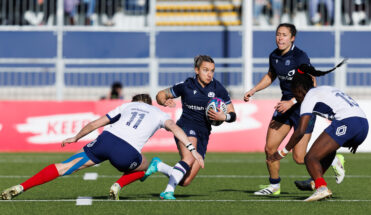Scottish Rugby determined to enhance a warm welcome to all to our sport
Scottish Rugby is working closely with equality champions to welcome more under-represented sections of the community to the game in Scotland.
We have joined forces with CEMVO Scotland, a strategic partner of the Scottish Government Equality Unit, to look at what needs to be done to make our sport and what we offer more engaging.
CEMVO Scotland work with a network of some 600 organisations/individuals throughout the country aiming to further equality.
Earlier this autumn Scottish Rugby held two informal engagement sessions with ethnic minority communities in Scotland, one at BT Murrayfield in Edinburgh, the other at Scotstoun Stadium in Glasgow.
The sessions included behind the scenes tours, videos and photographs showing some of the current diversity of the game in Scotland, and personal testimony from players and clubs.
Each also included a lively discussion with guests from ethnic minority communities putting forward their ideas to drive forward the initiative.
At BT Murrayfield the 50 guests heard from Dr Asghar. He has mobility issues but when holding the ball, he felt compelled to try kicking it. There was also praise for Musselburgh Rugby Club and the work of their mini rugby section.
At Scotstoun, the 50 guests heard a powerful personal testimony from Tennent’s Premiership club Marr, Cartha prop Shabaz Khan and from Scottish Rugby past President, Ed Crozier, about the work his club, Cartha Queens Park, does to engage with schools in their catchment area, which covers diverse ethnic communities.

Shabaz Khan (credit: Ben Blair)
Shabaz, a dual Pakistan internationalist in both rugby union and league, who also played club rugby at Cartha, spoke of his ten-year love for the game, the life-chances it continues to give him and how, on the one occasion he had been victim of racist abuse on the field, it was opposition players who were quick to call it out and how the case was dealt with robustly by Scottish Rugby.
Glasgow Warriors managing director Alastair Kellock, the former Scotland, Glasgow and Edinburgh captain, also spoke on the parallels between sport, culture and communities and how Glasgow Warriors actively seek to improve life for their supporters.
Fiaz Khan, CEMVO Scotland’s Race Equality Mainstream Officer, said: “There was a real discernible warmth to the sessions.Guests in Glasgow said they had really enjoyed the session at Scotstoun. They felt at home. They were buzzing at the end of it.”
Further activity is planned: with Scottish Rugby’s contracted academy players; in the north-east of Scotland; and at individual clubs.
Scottish Rugby has also met with Show Racism the Red Card and has now received a proposal from the anti-racism organisation as to how it can build on work that has already taken place at Hawick and Cambuslang Rugby Clubs.
Follow-up work from the sessions at BT Murrayfield and Scotstoun is now underway, to link those guests who wanted to try rugby in any form to their nearest club; to explore with a businesswoman on the southside of Glasgow establishing a walking rugby group; and to link a youth group with more than 150 youngsters to the Cartha club.
Lothian list MSP Foysol Choudhury, elected to the Scottish Parliament in May 2021, is the first of Bangladeshi heritage to take to the benches at Holyrood.
Mr Choudhury, who is also chair of the Edinburgh and Lothians Regional Equality Council, declared: “I commend Scottish Rugby for working with CEMVO Scotland on this initiative and for trying to make their sport more representative of wider communities in Scotland.
“There was a very honest exchange of views at the gathering at BT Murrayfield. I’m very pleased that Scottish Rugby wants to improve its relationship with ethnic minority communities and the opportunity our communities have to shape that future.
“I look forward to hearing how the project develops.”
Shaista Asghar, CEMVO Scotland’s Head of Operations and Resources, said: “Scottish Rugby deserves credit for coming to us proactively, but I also know it is determined not to rest on any laurels here.
“Both our organisations see that there’s work to be done and there are golden opportunities.
“It’s estimated, for example that by 2031, some 25% of the youth population of Glasgow will be from ethnic minority communities.
“Of course, these people are very proud of their heritage, but they could be third or fourth generation and they absolutely regard themselves as Scots and that should not be lost on any organisation or business looking to build a more inclusive future.”
As the pandemic took hold, Scottish Rugby was in conversation with Scotland age-grade forward, Callum Bell.
Callum, who plays his club rugby at Heriot’s, was keen to know what he could do to show active support for rugby’s stand against racism.
He undertook a fund-raising campaign – much like the Rainbow Laces initiative to promote inclusion with the LGBTQI community – to show his opposition to any form of abhorrent discrimination.
And he spoke about his experiences in school rugby in Glasgow, where he felt more could be done to encourage players from ethnic minorities to maintain involvement in rugby when they left school. He asked, what more could we do?
Chief Executive Mark Dodson said: “Rugby has always been a game open to anyone and everyone in Scotland.
“We’ve already stressed the importance we attach to growing and investing in the women’s and girls’ game and, working with our clubs, that is a priority for us.
“But alongside that, and to emphasise how much value we place on inclusion and diversity, cornerstones in our strategic plan through to 2024, we are focusing on actively working with ethnic minority communities in Scotland.”
Scottish Rugby’s Chief People and Engagement Officer, Shona Bell, said: “We are at the start of a journey and keen to learn how we can better enhance the welcome that we offer to all communities in Scotland and work with them to deepen understanding of our sport and its values.
“The steps we have taken so far have been hugely valuable and the feedback and interaction we had everyone who came to the sessions at BT Murrayfield and Scotstoun will only help to break down barriers, both perceived and real.
“To grow the game it is important we recruit more players, referees, administrators and volunteers from all backgrounds and all ethnicities to the game, whether that’s full contact rugby, Tartan Touch, Tag Rugby, Golden Oldies, unified rugby or walking rugby.
“It’s also important that Scottish Rugby and sport is more widely seen as a potential career option for communities that are presently under-represented in our workforce and we know there is more work to do to inform and promote ourselves as a welcoming and inclusive sport.”
Scottish Rugby could cite examples of good work at individual clubs and schools. But we recognise that more work is required across the board.
If you want to know more about Scottish Rugby and how you can become involved on or off the field in any capacity, we’d love to hear from you.
Image credit for top image: Simon Wootton
Tags
Related news
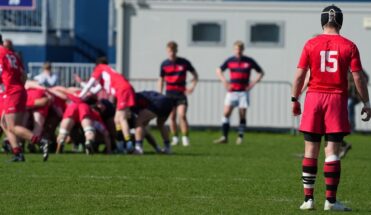
Inter-city double header as Edinburgh Rugby U16 host Glasgow Warriors U16
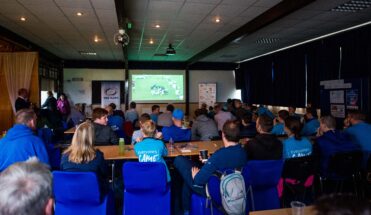
Visit a Scottish Gas Net Zero Roadshow at your local rugby club
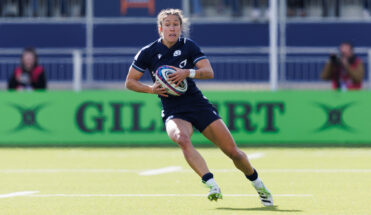
Lloyd set for milestone cap against Azzurri

Review: U17 FOSROC Academy Festival
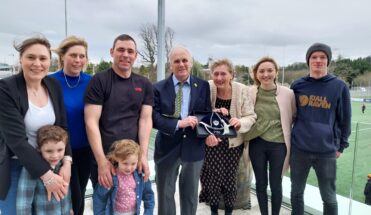
Super ‘sleuthing’ traces relatives of Scotland cap
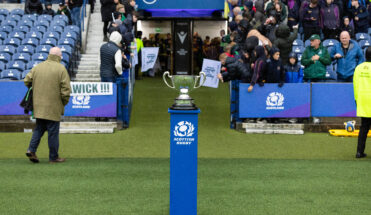
Silver Saturday finalists confirmed – the countdown is on
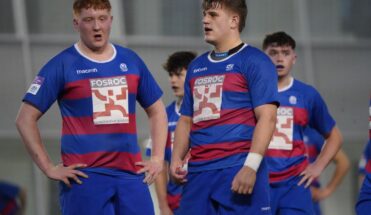
U17 FOSROC Festival sees regional academy sides joined by Newcastle Falcons
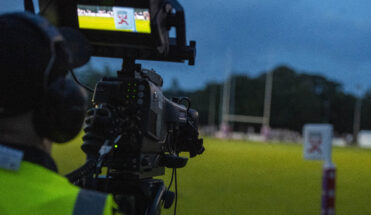
BBC ALBA to broadcast live FOSROC Super Series Sprint matches
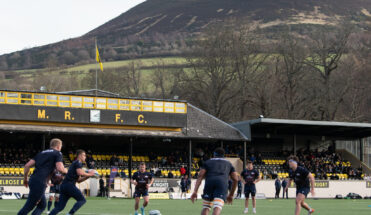
Teams to feature at Melrose Sevens in tribute to Eric Liddell
